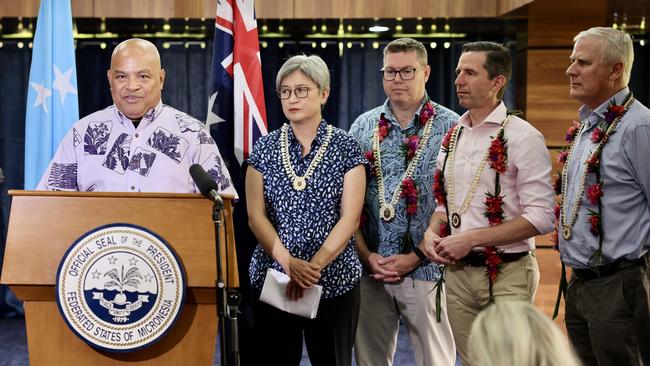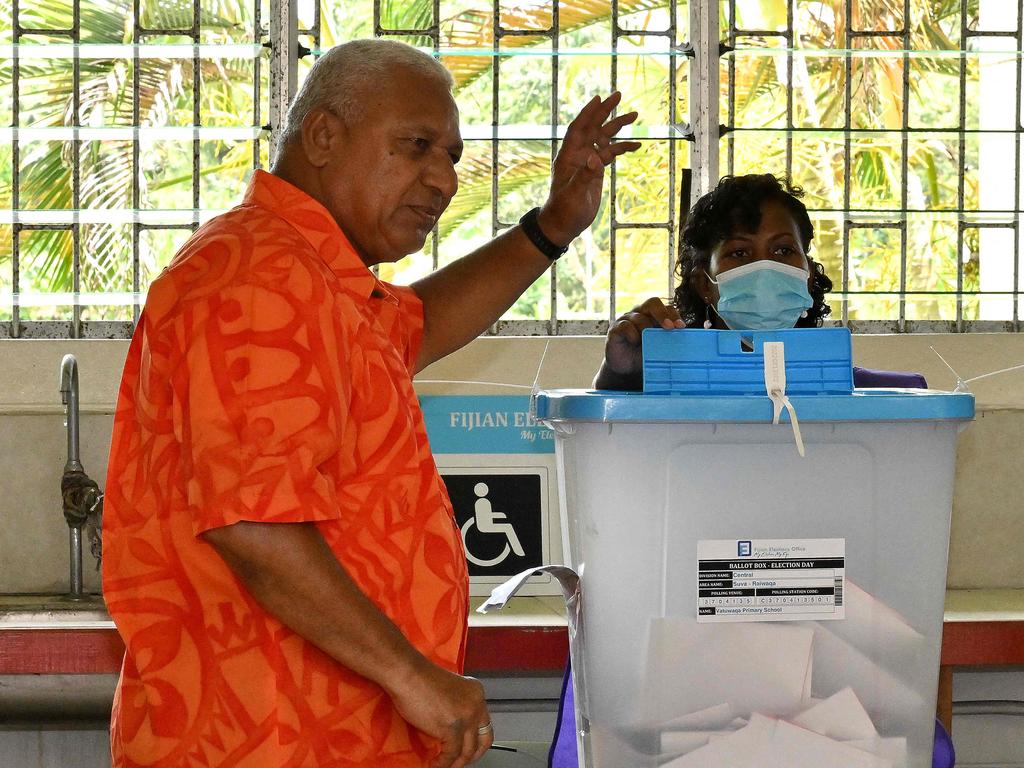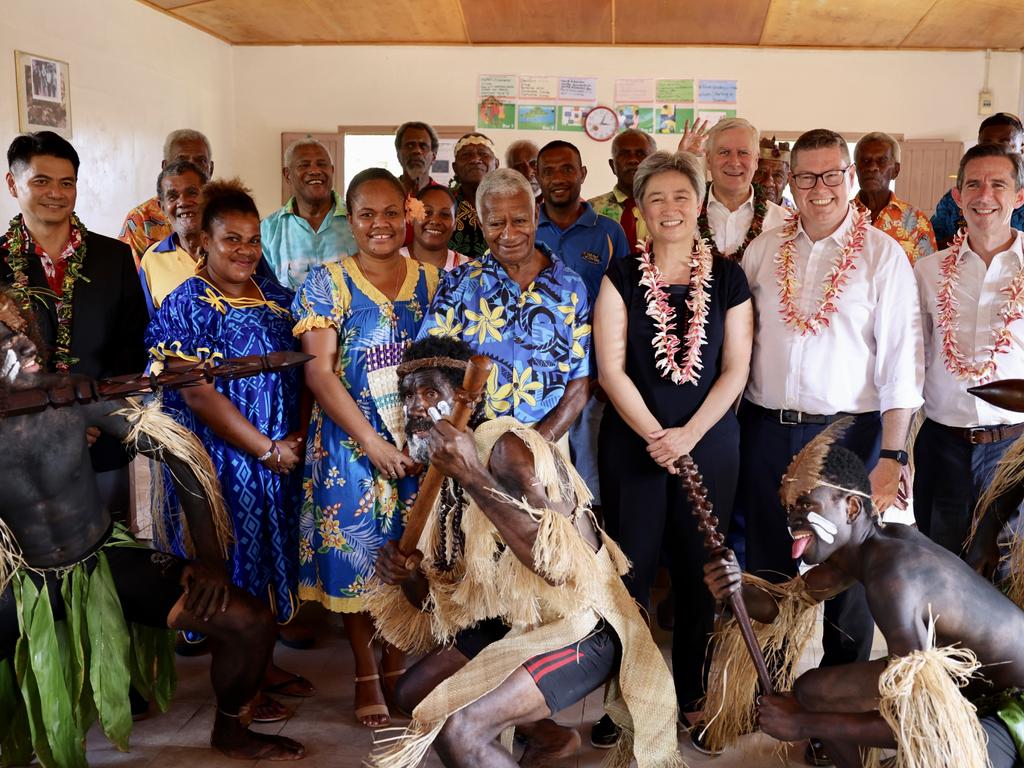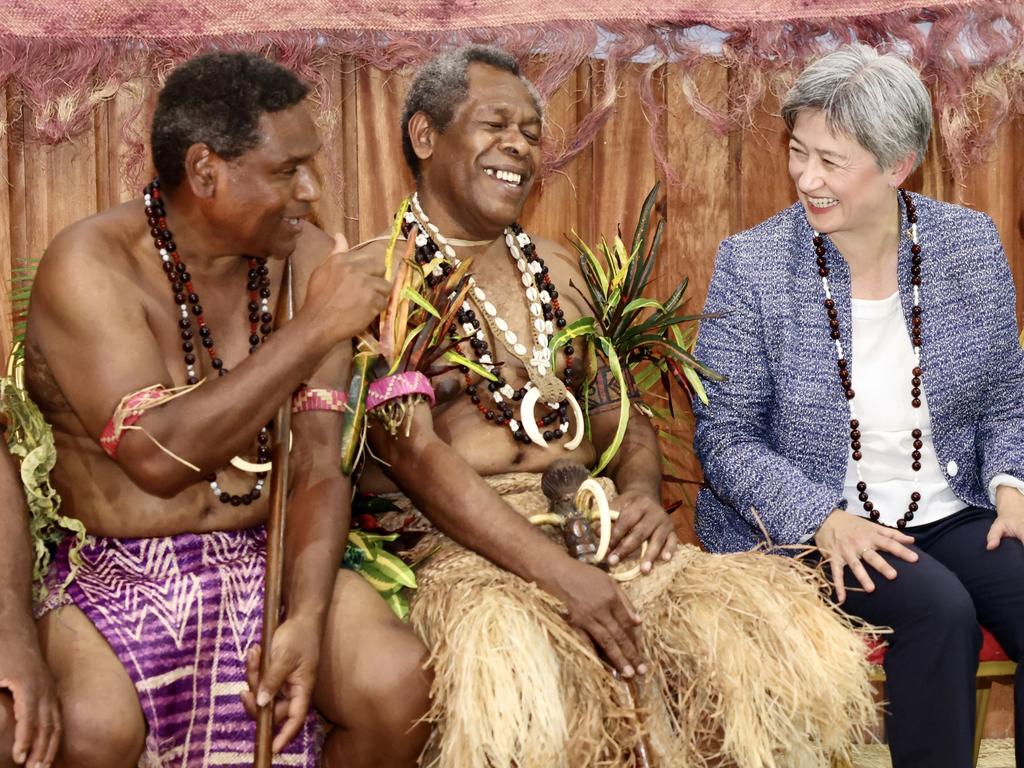‘We look after each other’: Pacific nations resist China
The leader of the push to deny China a region-wide security agreement says Pacific nations must continue to stand together to prevent ‘forces from outside’ from threatening regional peace.

The leader of the push to deny China a region-wide security agreement says Pacific nations must continue to stand together to prevent “forces from outside” from threatening regional peace.
Federated States of Micronesia President David W. Panuelo welcomed an Australian delegation led by Foreign Minister Penny Wong on Wednesday, receiving thanks for his leadership in ensuring regional stability.
In May, Mr Panuelo wrote a letter to Pacific Island Forum members warning that the proposed security agreement would hand Beijing control of the region’s ocean territory and communications infrastructure, and could lead to a new Cold War between China and the West.
The letter was subsequently leaked, revealing the existence of the proposed deal. It sparked a diplomatic pushback by the US and Australia, which feared China could use the agreement to establish a military presence in the region, and the forum’s ultimate rejection of the deal.
Mr Panuelo said his was a nation that respected sovereignty and human rights, which required the rules-based order to prevail in the Pacific.
“We want the Pacific to continue to be a harmonious Blue Pacific region, and so through the Pacific Islands Forum, we say ‘family first’,” he said.
“We look after each other to make sure that forces from outside do not come and disrupt the peace and security of our region.”
He said any nation that sought to engage with the Pacific “will have to respect that rules-based international order, and we are a country of rule of law, that must exist as a democratic nation”.
Senator Wong hailed her host, who also opposed Solomon Islands’ security pact with China, saying he had “demonstrated real leadership” in ensuring regional stability.
She said countries had the ability to “choose what sort of region they want”, which was Mr Panuelo’s letter was about.
“This country has been a leader. This has been a difficult time for the Pacific region,” she said.
“It has been challenging. And this President and this country has shown enormous leadership. We are deeply respectful of that.”
Ten Pacific nations that have diplomatic relations with China rejected the proposed security deal and five-year “action plan” at a meeting with Chinese Foreign Minister Wang Yi in May.
The full PIF, including Australia, resolved in July to maintain “a family-first approach to peace and security”, effectively shutting out China from securing Solomon Islands-type security agreements with forum members.
Kiribati, however, remains a key concern for Australia and the US. It has left the PIF and has become increasingly close to China while resisting closer co-operation with the West. The country has an airfield that Australia and the US fear could one day become a Chinese base.
Mr Panuelo said the PIF was “extending the olive branch” to Kiribati, but it was resisting returning to the grouping, which has historically enabled Pacific Island countries to deal with great power competition in the region.
The bilateral delegation, which includes Pacific Minister Pat Conroy, opposition foreign affairs spokesman Simon Birmingham and opposition Pacific spokesman Michael McCormack, was welcomed to the FSM capital, Palikir, with shells of kava and traditional dancing.
The visit coincided with the nations’ 35th anniversary of bilateral relations.
Senator Birmingham said the partnership between the countries was more important than ever “for us to work together with the type of leadership that, Mr President, you have shown”.
The delegation departed after about eight hours in the country of just over 100,000 people, arriving in Palau late on Wednesday.
A day earlier in Vanuatu, Senator Wong signed a historic security treaty with the Prime Minister.








To join the conversation, please log in. Don't have an account? Register
Join the conversation, you are commenting as Logout